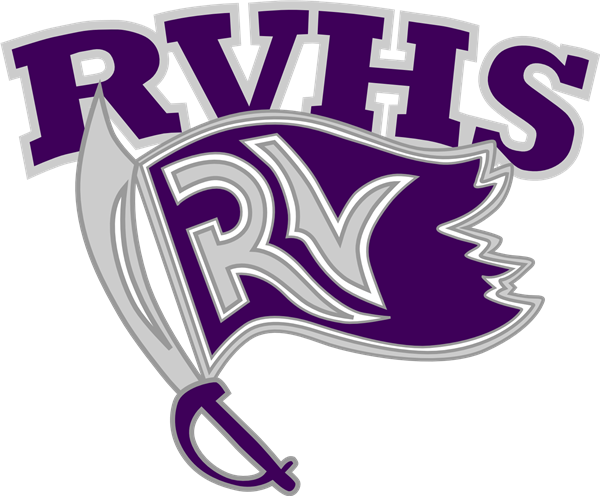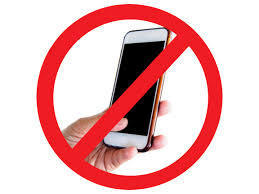Student Use of Cell Phones and Personal Electronic Devices During the School Day
Purpose of Policy
The purpose of this policy is to create a focused, distraction-free environment by regulating the use of cell phones and personal electronic devices during the school day in a manner that supports teaching and learning while accommodating the needs of students with disabilities and medical conditions. This policy is required by W. Va. Code §18-2-46. The goal of this policy is to mitigate the potential detrimental effects of unregulated electronic device use, including impacts on academic engagement, social-emotional well-being, and instances of cyberbullying.
Scope of Policy
This policy applies to all students of McDowell County Schools (MCS) from PreK through twelfth grade during school hours on school property.
Students in Grades PK-5: Students may bring personal electronic devices to school, but these devices must be placed on silent or turned off and must remain in the student’s locker, backpack, or teacher-designated area during a normal instructional day. Students may not use their devices before school, between classes, during lunch. Usage may resume at the end of instructional day upon dismissal off the bus or upon release in the parent/guardian care.
Students in Grades 6-8: Students may bring personal electronic devices to school, but these devices must be placed on silent or turned off and must remain in the student’s locker, backpack, or teacher-designated area during a normal instructional day. Students may use personal electronic devices before school or after school.
Students in Grades 9-12: Students will be allowed to use personal electronic devices before school, after school, and during the student’s lunch break. These are the only times during the school day that are not considered instructional time. All other times (including, but not limited to, excuse from class to the restroom or any other destination or transition times between classes) are considered instructional time during which all personal electronic device use is prohibited.
Students are expected to be in class on time. Finishing a communication or other action on a cell phone in the hall is not a justification for tardiness to class and constitutes use of a cell phone during instructional time.
Definitions
Personal Electronic Device: Any portable device capable of wireless communication or computing, including but not limited to cell phones, tablets, laptops, smartwatches, smart glasses, and portable gaming systems not provided by a county board of education. For the purpose of this policy, smartwatches, earbuds, and smart glasses will be treated with the same restrictions and consequences as cell phones.
Instructional Day: Period of time from the start of the first instructional period to the end of the last instructional period, including transition times between classes.
Classroom Setting: Any environment where instruction or activities related to the school curriculum are occurring, including, but not limited to, general classrooms, gymnasiums, common areas, or any other area where instruction may occur.
Actively in Use: Being used by a student for time, messaging, voice calls, picture taking, video recording/watching, or listening to music (earbuds or headphones).
Policy
General Restrictions
1. Limitations in Classrooms: Student personal electronic devices shall not be seen, heard, or actively in use while the student is in the classroom during instructional time. Ringers must be silenced in the classroom.
2. Physical Detachment and Storage: Student personal electronic devices must be physically detached from the student’s body and put away in a backpack, assigned locker, or storage explicitly identified by school. These devices should be powered off unless an exception applies, as outlined in section below.
3. Unauthorized Use may include texting, social media browsing, gaming, photography, videoing, or any activity not related to instruction and is subject to school and district acceptable behavior policy.
4. Staff Authority and Confiscation: Staff are authorized to confiscate devices in violation of this policy. These devices must be turned over to administration as soon as possible but no later than the end of the instructional day.
5. The taking of photos or recording of videos, whether by cell phone or any other device, in places where privacy is a reasonable expectation, is strictly prohibited.
6. Using cell phone cameras to record altercations on school grounds or at school events is prohibited. In such cases, phones will be confiscated as evidence, and school disciplinary actions will be strictly enforced.
Exceptions and Accommodations
Students with documented needs under the following categories are permitted to use personal electronic devices under defined circumstances:
1. 504 Plans and IEPs: If a student’s 504 Plan or IEP includes provisions for the use of a personal electronic device to access accommodations (e.g. communication apps, times, audio recordings, or reminders), such use is allowed as specified in the plan.
a. School staff muse be informed by authorized school personnel who have access to all 504 Plans and IEPs of these accommodations and who ensure that these accommodations are followed consistently.
b. Use must be limited to the functions outlined in the 504 Plan or IEP and may be subject to monitoring, as appropriate.
2. Medical Conditions: Students with documented medical needs (e.g. diabetes, epilepsy) whose Health Plan with the school requires the use of a phone or device for life saving health monitoring may carry and use personal electronic devices in accordance with their Health Plan.
a. Documentation from a licensed healthcare provider and a Health Plan must be on file with the school nurse and administration.
b. Device use under this exception must be discreet and solely for health-related purposes.
Enforcement and Disciplinary Action
1. Violations of this policy shall result in the consequences that are documented in each school’s Student Handbook.
2. Disciplinary actions shall be tiered and increasing in consequence with multiple infractions.
3. Refusal to comply with school expectations may result in additional consequences pursuant to MCS Policy 11-028, for insubordination.
4. Students with 504 Plans and IEPs or medical needs may not be penalized for device use that is consistent with their documented plans.
Violations of this policy will result in the following and documented in WVEIS for each offense:
· First Offense. Verbal warning and confiscation of the device until the end of the day. The student may pick up the device at the designated place and time, as outlined in each school’s procedure.
· Second Offense. Parent/Guardian notification and requirement for in-person retrieval of the personal electronic device by parent/guardian during school hours.
· Subsequent Offenses. Progressive disciplinary action in accordance with the school’s discipline matrix for Level One Violation.
Alternative Methods of Communication
While personal communication devices are prohibited, parents may still communicate with the student in a manner that does not distract the student or other students from the learning environment. Each school must:
1. Communicate the front office’s telephone line to parents.
2. Communicate the procedure at the school for visitors and pick up.
3. Work with parents/guardians to allow them access to see or speak with their student, as appropriate.
Responsibilities
School Administrators: Ensure staff and families are informed of this policy and understand the school’s local procedures. The school administrators are responsible for overseeing consistent enforcement of this policy. The policy must be in the school handbook and webpage. It should be separately reviewed with all students at the beginning of the year and acknowledge through signature page by both parent and student, to be kept on file at the school. It is recommended that the policy is posted on the school’s Schoology and social media pages.
Staff: Monitor and enforce policy in classrooms or their area of responsibility while supporting authorized exceptions. Staff, both professional and service personnel, may bring personal cell phones to work. However, those devices are not to be used while engaged in the supervision of students or doing the work of a normal employment day. During the scheduled work day, devices should be stored securely and set to silent to avoid disruptions.
Students: Follow rules regarding device use and use devices responsibly and respectfully.
Parents/Guardians: Communicate documented needs to the school. Support the school’s efforts by reinforcing the law and this policy to their student and model and discuss appropriate use of personal communicate device at home.
The school will not be responsible for broken, lost, or stolen personal devices. Parents/Guardians choosing to allow their students to bring these items will be responsible for the liability.
Policy Review
This policy shall be reviewed as needed by district leadership in consultation with special education and student services departments to ensure compliance with federal and state laws and to adjust based on school feedback and student needs.
Each school’s Local School Improvement Council (LSIC) shall annually discuss the progress of the implementation of this policy and at a minimum review the discipline data related to violation under this policy and make recommendations designed to promote compliance with the policy.

